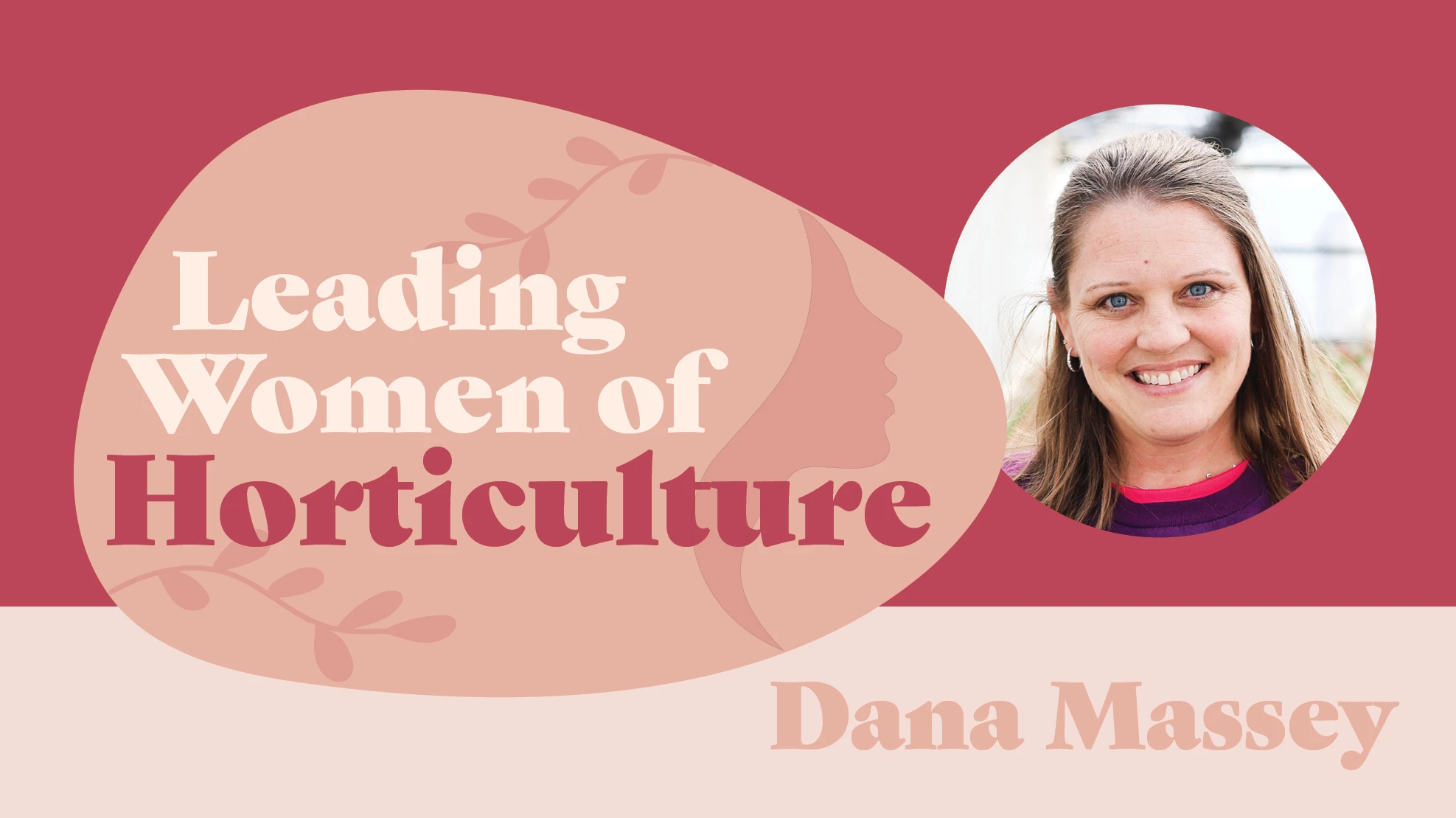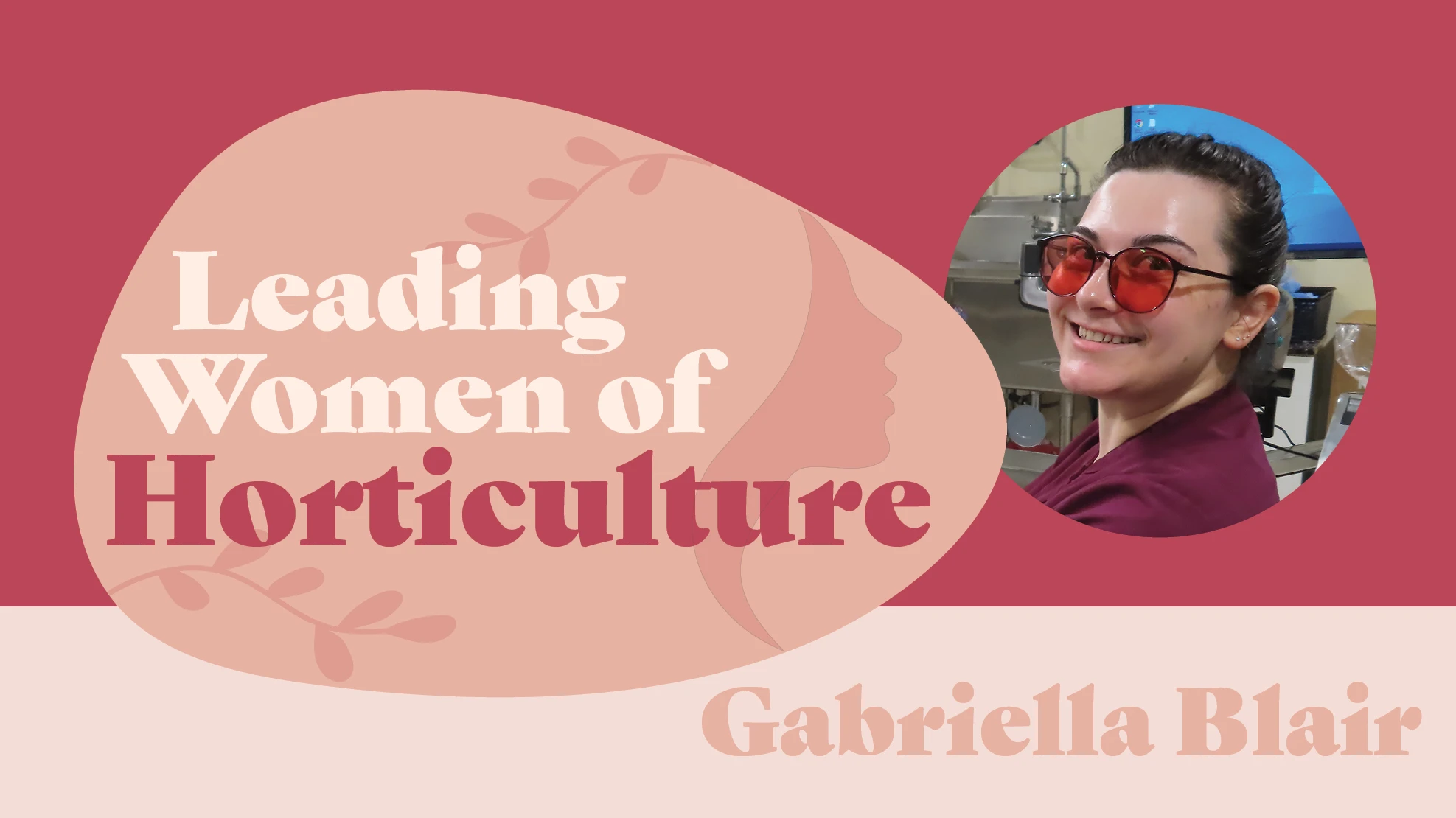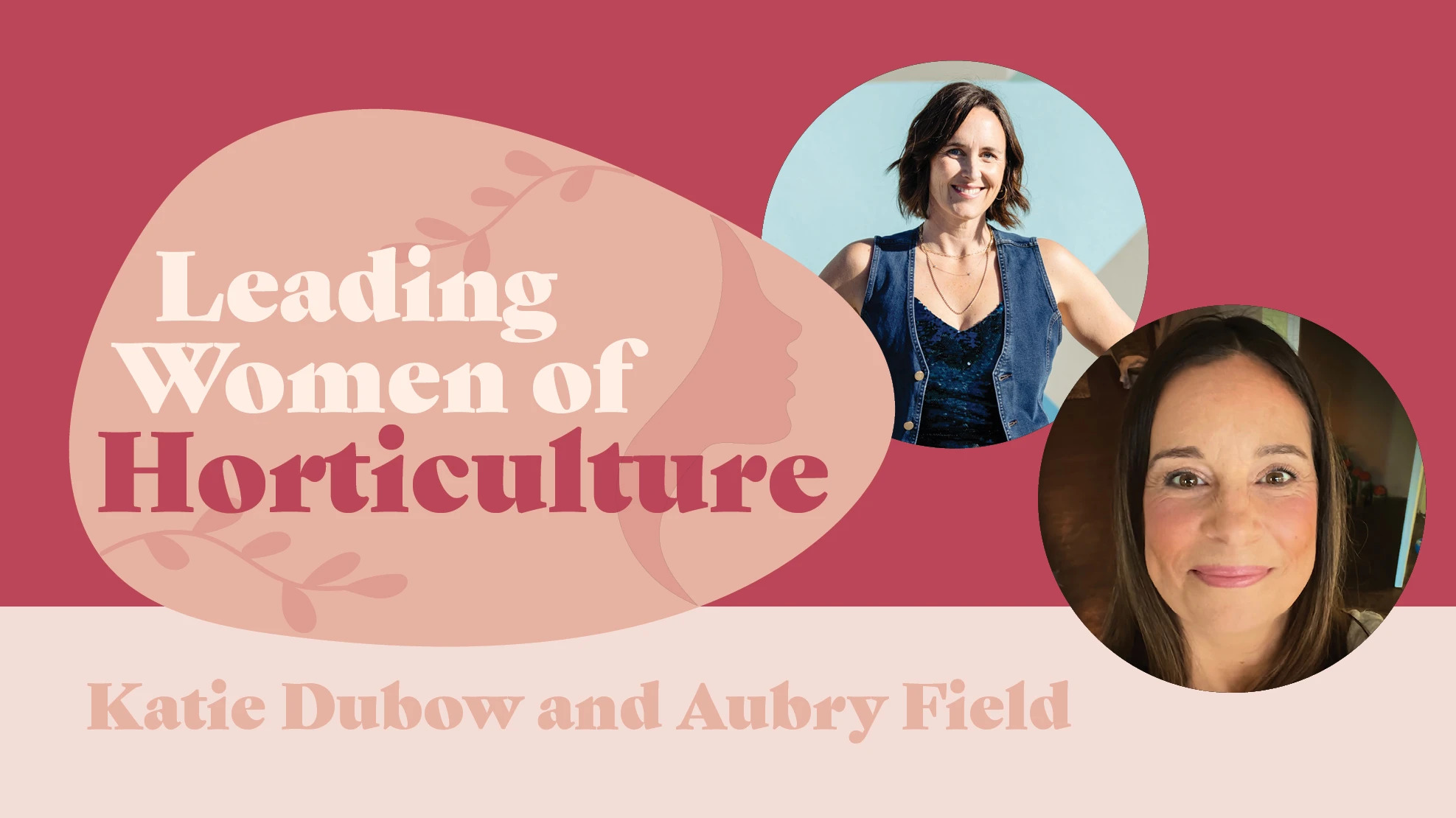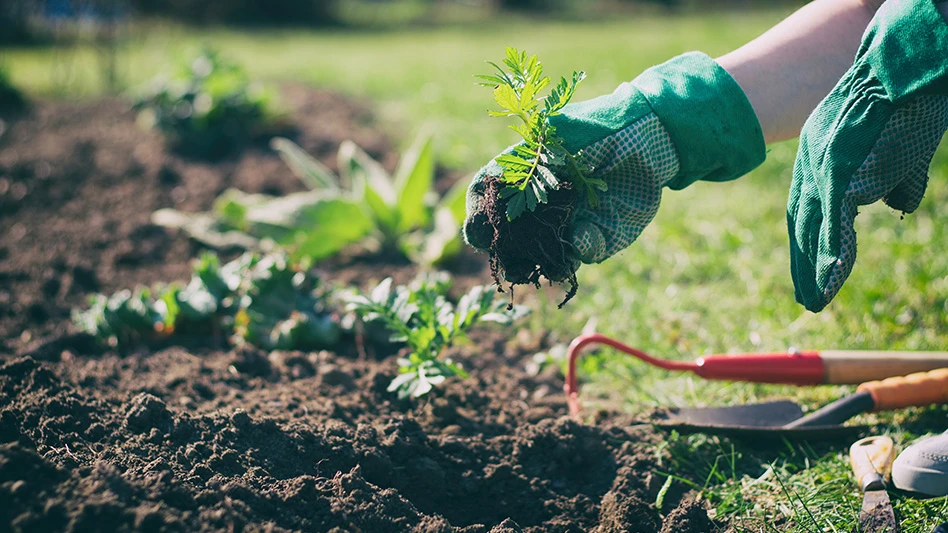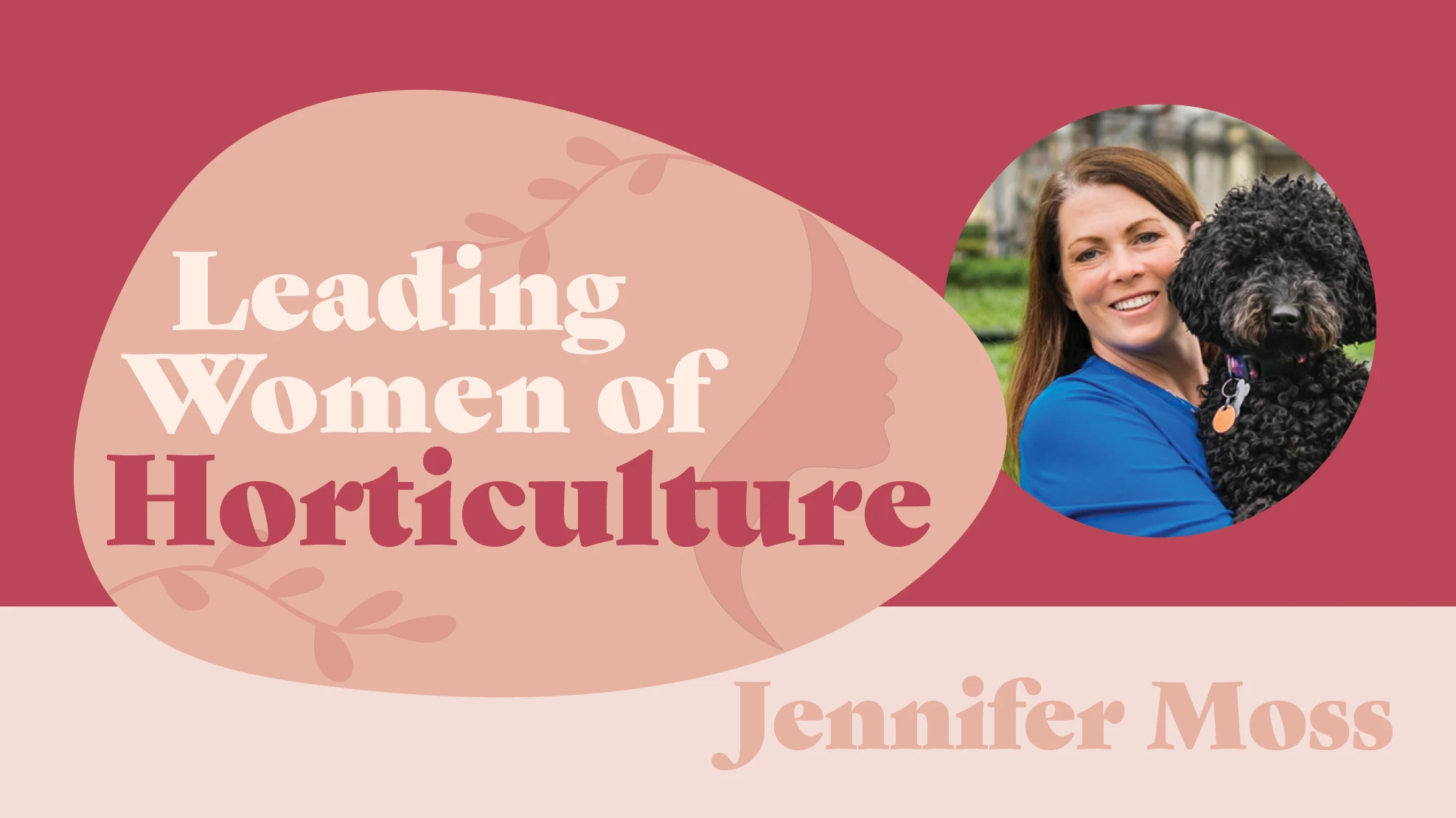
COURTESY OF DAVIDSON GREENHOUSE AND NURSERY INC.

When a client noticed Mark A. Davidson wincing while working on his landscaping project, he ran outside to offer a solution. Davidson, the owner of Davidson Greenhouse and Nursery Inc., had tried everything for his chronic back pain — from acupuncture to prescription painkillers — and nothing seemed to help.
But when his customer handed him a bottle of CBD oil that day three years ago, Davidson finally found relief. He began researching CBD and lobbying local lawmakers in Montgomery county, Indiana, where he’s also a councilman. In 2018, when the Farm Bill lifted the federal ban on hemp, Davidson joined a surge of retailers who began selling CBD products.
The new law made CBD mainstream. Mass merchandisers such as Kroger, CVS and American Eagle announced plans to carry CBD products. Market analysts at The Brightfield Group predict that CBD sales will exceed $5 billion this year and $23 billion by 2023.
“From day one, we’ve had unbelievable results,” Davidson says. “Both the sales and the stories that people come back to us with have been positive.”
But does CBD belong in your IGC? Follow these tips from IGCs that have embraced hemp if you want to navigate this new category and capitalize on the CBD boom
.

1. Do your research.
Thorough research is the first step before introducing any new product. When a product is surrounded by rapidly shifting regulations, it’s even more critical to study up and stay informed.
Brian J. Wheat, AAF, PFCI, did plenty of research before he brought hemp into his operation at Lafayette Florist, Gift Shop & Garden Center in Lafayette, Colorado. He began leasing greenhouse space to hemp production a couple years ago and started retailing CBD products earlier this year.
“Having confidence in what you’re selling is vital,” says Wheat, who has operated the family business for 35 years. “I’ve taken a personal interest in every product we carry in our garden center — be it bug killers or weed killers; I want to know what’s in it and how it works. If you’re not educated enough to be an expert on it, especially in such a new product category, then don’t carry it.”
Both Wheat and Davidson started using CBD oil to manage their pain years before they offered it in their stores, so they were familiar with the products. Wheat says that personal experience is key to selling a product like CBD.
“Trust is the biggest selling tool for my customers,” Wheat says. “If I’m using a product, then they’re going to give it a try.”
2. Choose carefully.
Due to discrepancies between federal and state cannabis laws, CBD isn’t currently regulated by the government — which means some products may contain undisclosed ingredients or no CBD at all. (A 2017 study by the University of Philadelphia’s Perelman School of Medicine found that nearly 70% of CBD products were labeled inaccurately.)
“If you’re going to carry hemp products and CBD oils in your retail store, vet the product and make sure it’s one you want to hook your wagon to,” says Wheat, who decided to carry the same products he uses from Pure Hemp Botanicals, located near his greenhouse. “Keeping it local, with somebody I knew and trusted, was a no-brainer.”
Davidson also approached vendor selection cautiously — with thorough research and personal visits to hemp farms and extraction facilities. “Make sure you do the research so you can tell people, ‘I know this is a good product because I know the owners personally,’” he says.
Reputable CBD suppliers will provide a Certificate of Analysis (COA) to show the lab results confirming the levels of CBD and other compounds in their products. Third-party testing can further validate the purity of products you’re selling.
3. Showcase your display.
Wheat and Davidson were both confident enough in their CBD products to place them prominently in the most visible spots in their stores.
Davidson put two glass cases right by the front door, so it’s the first display customers see when they enter. “It’s in your face and that has been very beneficial because everybody is curious,” he says. “CBD should be front and center because it gets people asking questions.”
Wheat keeps CBD products inside a glass case on the checkout counter, “so it’s highly visible and we’re not trying to hide it,” he says. Keeping the products locked up is an important precaution, he adds, “because some of the most potent tinctures can go for $150 a bottle, so it’s pretty high-priced merchandise.”
When it comes to product selection, Davidson recommends building a wide assortment. He started out carrying oils and tinctures (or liquid extracts), and then expanded the line each time he reordered — adding gel capsules, gum, bath bombs, topical salves and dog and cat treats.
“People who are having success with CBD want to try other products,” he says, “so it’s nice to have a variety.”
4. Educated and explain.
Wheat and Davidson agree that the most important part of the display is the information posted next to it. Both stores offer brochures and other materials to explain how CBD products work.
“We have printed out some information and research for people, including general CBD info sheets explaining the endocannabinoid system and the difference between hemp and marijuana,” Davidson says.
But don’t just rely on printed handouts; make yourself available to answer questions about CBD from employees and customers.
“I went around personally and talked to every employee to explain how it worked, why it worked for me and why we’re carrying it,” Wheat says. “I said, ‘If you don’t feel comfortable selling it because you don’t know enough about it, I’m here for you. Give customers my business card and have them contact me if they have any further questions.’”
Wheat gets plenty of calls about CBD. He says that taking time to educate customers will separate IGCs from other merchandisers — and that’s why consumers will buy CBD from their local garden center, over a growing number of other retail options.
“As a small business, we have to be better educated and more invested in our products than the mass market,” he says. “That’s how we compete as garden centers — we’re competing on information, education and trust.”


5. MARKET WITH CARE.

Davidson can share plenty of success stories from his customers, who have experienced relief from pain, neuropathy and anxiety — and even seen improvements in children with autism or epilepsy — after using CBD.
But retailers must be careful not to make any therapeutic promises made when selling CBD. Although the 2018 Farm Bill legalized hemp, the Food and Drug Administration (FDA) still prohibits companies from making claims about the health benefits of CBD products.
When customers ask Davidson if CBD will help their condition, he has a standard response: “Well, I can’t say for sure that it will help you, but it won’t hurt you,” he says, and shares his personal experience. Instead of referring to it as a medicine or even a supplement, he equates it to “a pure, natural plant extract” or “a beneficial herb.”

Both Wheat and Davidson eased into CBD — quietly adding products and offering education before they ever started marketing. Davidson quickly learned that, while hemp is technically legal, certain vendors still shy away from CBD, which can make marketing tricky.
Earlier this year, Davidson went to his local radio station to record spring promos that highlighted his new CBD products. But the station’s parent company refused to run his ads because of the connection with cannabis.
So, Davidson pulled his radio contract and turned to online channels instead — setting up an e-commerce store called Absolute Hemp Products and using PayPal to process payments. “All of a sudden, PayPal confiscates our transactions because we’re selling cannabis products,” Davidson says.
To get around that, Davidson calls online shoppers after they place an order to process credit cards manually through the garden center. “It inadvertently added a personal touch,” he says. Davidson relied heavily on social media, but it wasn’t long until Facebook locked his advertising account for promoting CBD. “I couldn’t boost my ads anymore, so I made a Facebook post that said, ‘I’ll give $100 worth of CBD products to someone who shares this post before the end of the month,’” he says. “The first time I did that, it was shared 586 times and reached 28,000 people — about 10 times more than a paid Facebook ad would have.” Of course, Davidson includes a disclaimer on the Absolute Hemp Products website that says: “These statements have not been evaluated by the Food and Drug Administration. This product is not intended to diagnose, treat, cure or prevent disease.” Wheat posted a similar statement, and he encourages customers to speak to their doctors if they have medical questions about CBD.
6. CAPITALIZE ON CBD.
Wheat hasn’t done much marketing since introducing CBD products in April. But within just five months, he has already reordered three times, as his CBD business grew through line-of-sight and word-of-mouth alone. At Davidson Greenhouse, CBD has generated $250,000 in sales in the first year and a half — providing a steady year-round boost to the seasonal business. “This January and February, we did about $10,000 a month more than any previous year, and that was completely attributed to CBD sales,” Davidson says. “Our CBD clients have helped the rest of our garden center business too, so it’s been a win-win.” Wheat and Davidson say CBD is a perfect fit for their IGCs, because customers trust them to provide reliable plant products and expertise. If you’re committed to educating your customers about CBD, then your IGC could be in a prime position to capitalize on it, too. “In garden centers, as in any retail business, we’re always looking for other product lines we can carry to help us be more profitable,” Wheat says. “If CBD is going to help our business grow and be more financially secure, then we’re not going to stop selling petunias, but we’re going to add CBD products to keep our business stable.” The author is a freelance writer based in Cleveland and a frequent contributor to Garden Center magazine.

Explore the October 2019 Issue
Check out more from this issue and find your next story to read.
Latest from Garden Center
- Brand Spotlight: Growing Sweet Success in Small Spaces with Butterfly Candy™ Buddleia
- Super Charged Moon Juice from Moon Valley Nurseries now available nationally
- 2025 Proven Winners Horticulture Scholarship applications now open
- Leading Women of Horticulture: Anna Ball, Ball Hort, and Terri McEnaney, Bailey Nurseries
- Dümmen Orange North America celebrating 25th anniversary in 2025
- Illinois Landscape Contractors Association changes name to Landscape Illinois
- Leading Women of Horticulture: Arden Pontasch, North Creek Nurseries
- Spring Meadow Nursery's Freedom Shelley finds joy in plants

